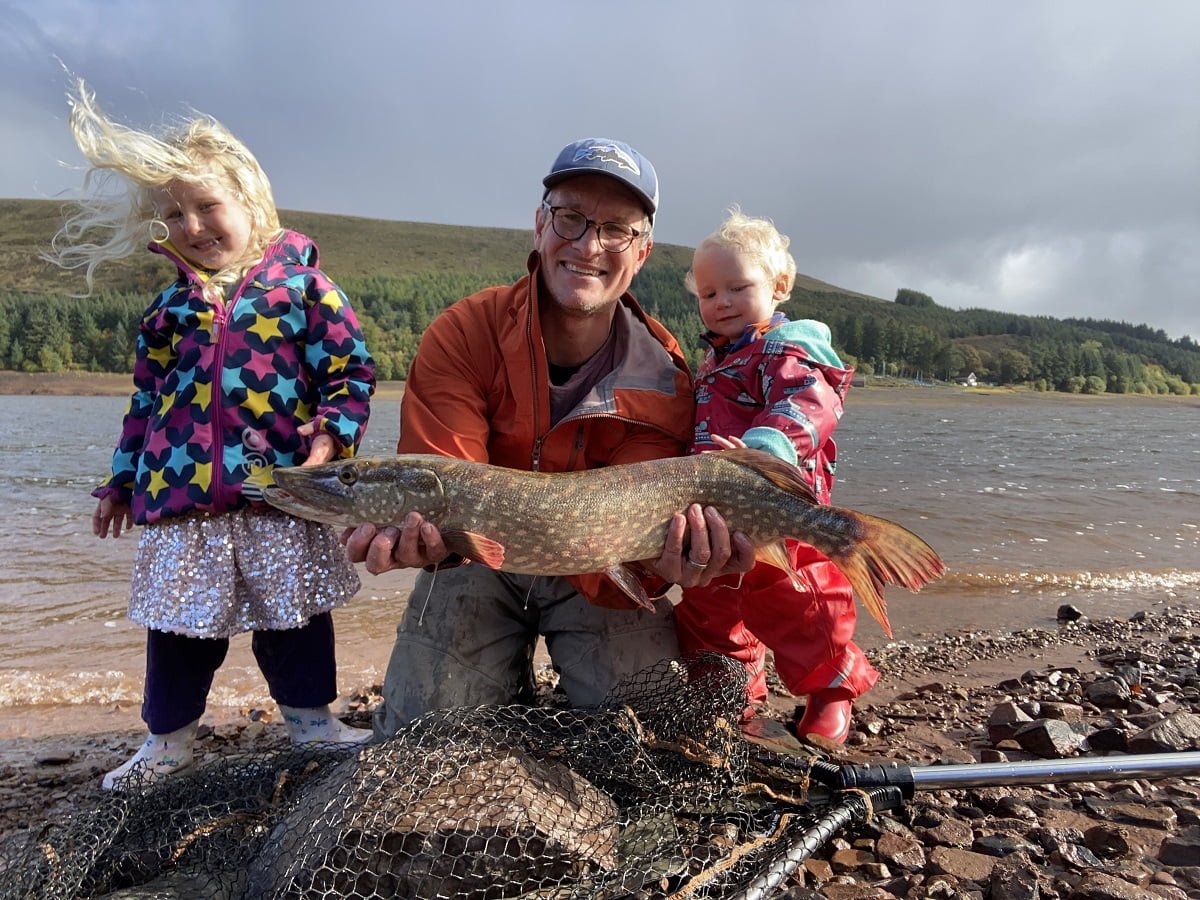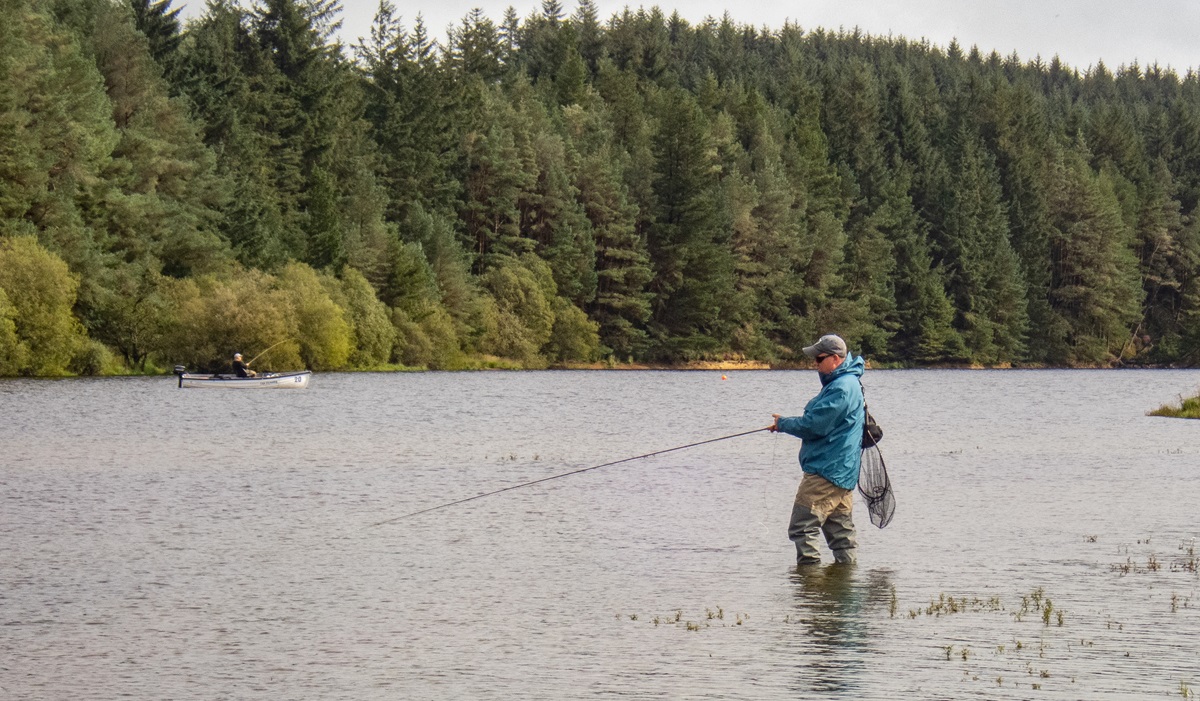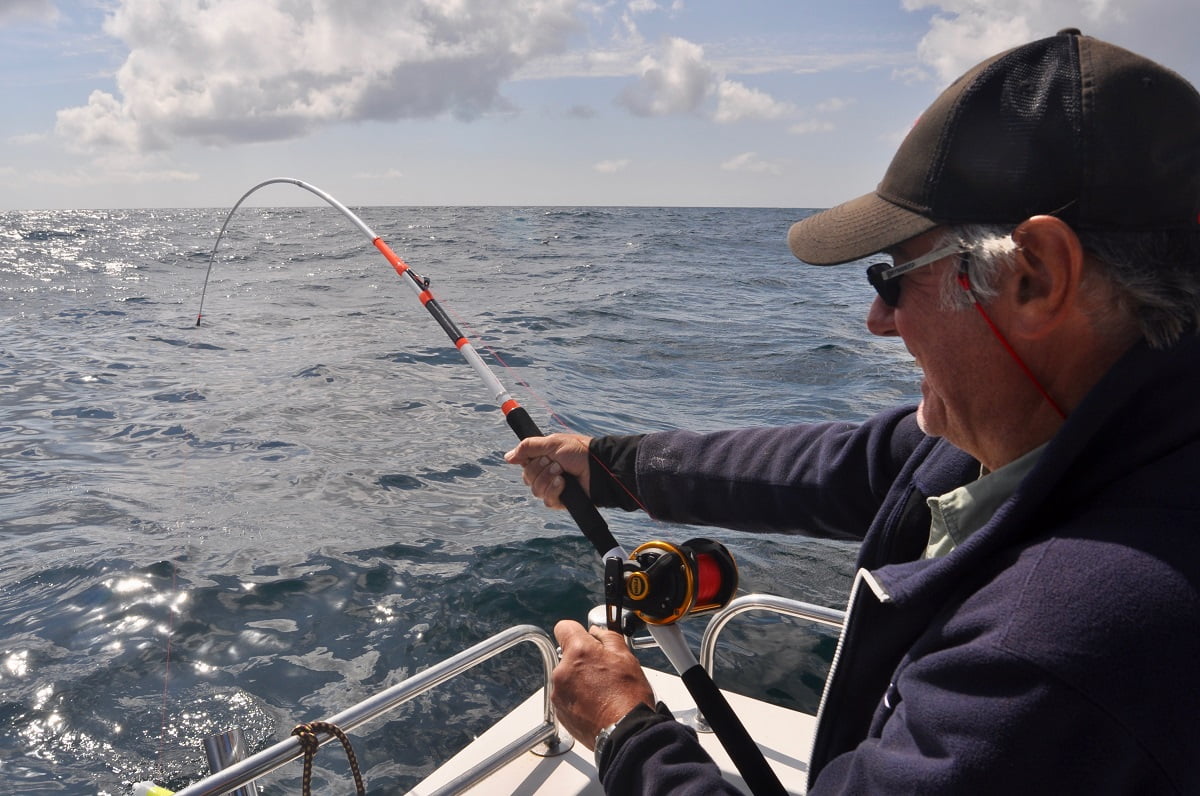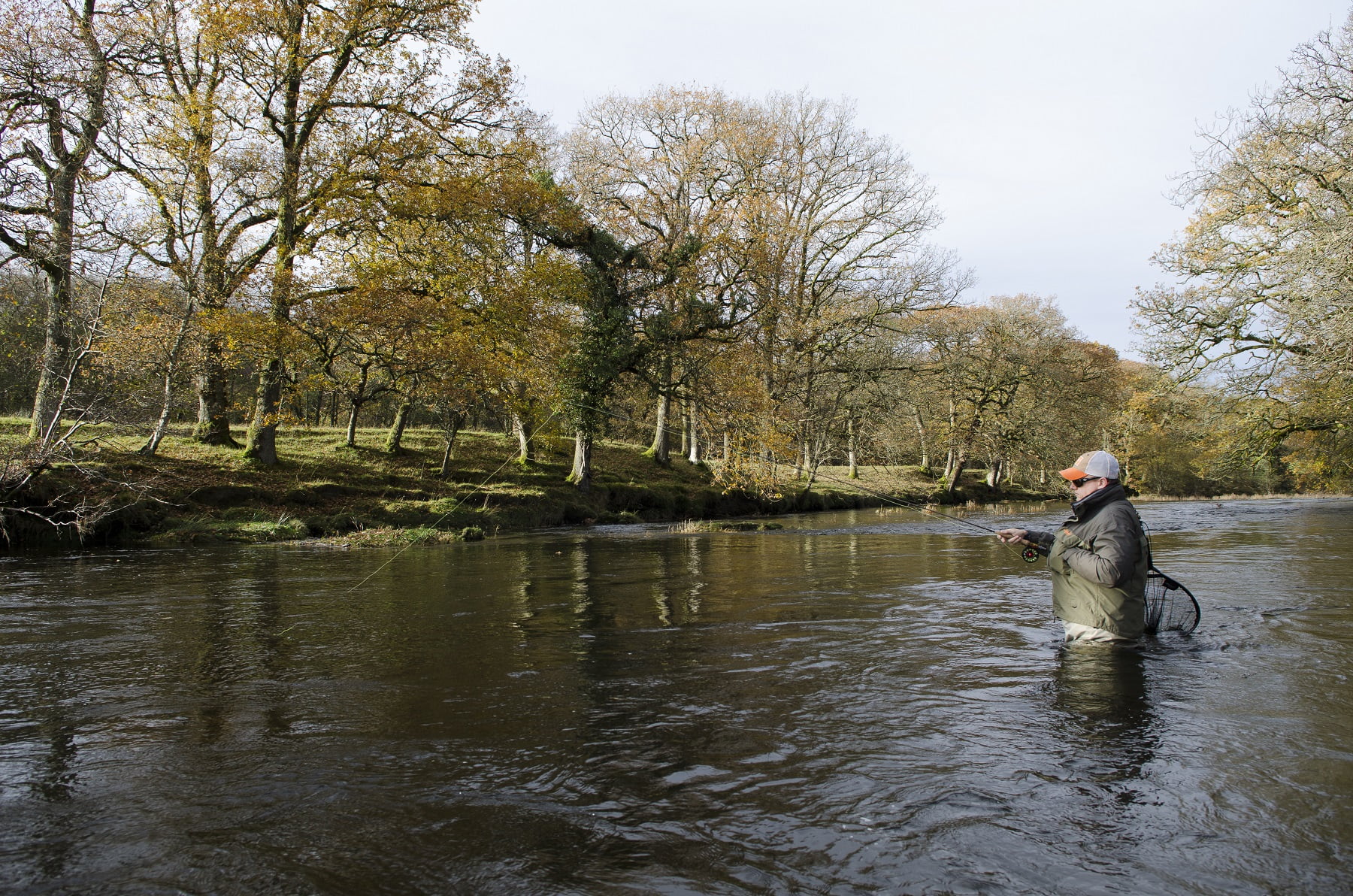Taking Kids Fishing by Will Millard
We have all been there. The children are out of school, knocking about the house and getting increasingly into their phones, screens, digital devices, and some absolute clown on TikTok. You want to get them into fishing – outside, in the fresh air, and into nature – but you want to make sure that they have a really great time too.
Fishing is active and fun. It teaches patience and all of the other huge benefits of learning a new skill. Very few of our childhood memories last as long as those from our first days fishing. I learnt aged four with my Dad and Grandad, and have gone on to treasure the time I now spend teaching my own children (and the children of my friends) how to fish.
Get it right, and that day could be the gateway towards a lifetime spent by the water – but get it wrong and you could very easily put a youngster off angling for life.
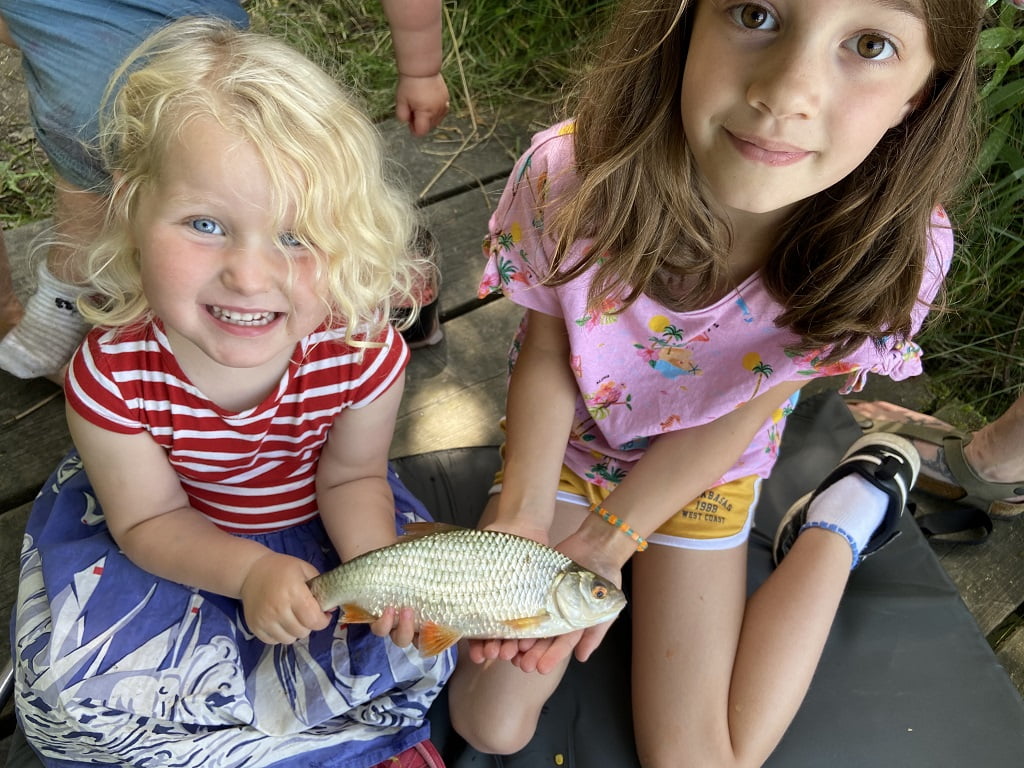
Here are my top tips for a successful and fulfilling day out with a little person:
Check the Forecast: The number one takeaway from a failed trip out with young kids was that they got too wet or cold. It might be the perfect weather front for a big carp or pike, but you’ll be much better off waiting for a warm dry day before heading out with youngsters. Bring waterproofs and warm clothes – and make sure you have spares too, just in case someone goes for an unscheduled dip! Think about a brolly or bivvy shelter for extra protection – and for building something of a ‘den’ for picnics and play (or just a base to stop all your gear from spreading out across the bank in little fingers!)
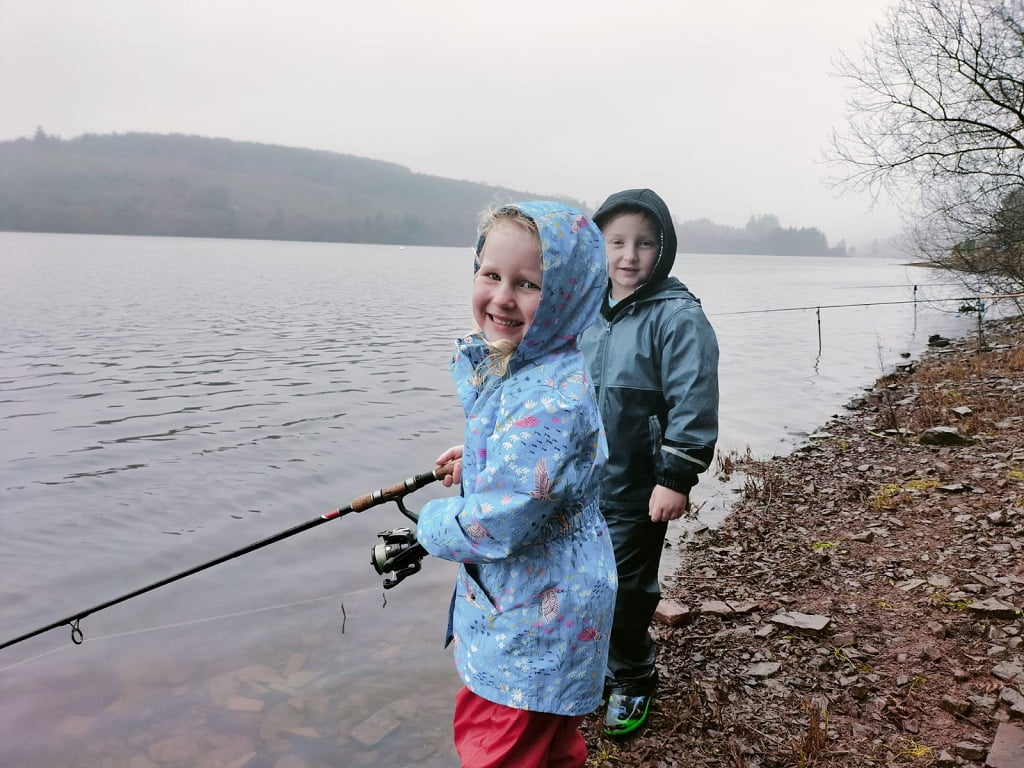
Bring Food: An army marches on its stomach and kids fish on theirs too! Make sure you bring plenty of food and drink. This isn’t exactly bribery, but establishing the idea that fishing is a time when you can have a few of the treats is no bad thing. I’ll be cracking out the crisps, sweets, and chocolate biscuits – just to make sure they know that this is absolutely a time for fun.
Keep it simple: Don’t get bogged down in technical details. The most basic float rigs, or a whip style set up, are ideal – something to look at on the surface, holding their focus on one simple thing, while establishing the principles of how fish bite and when to strike. Pick baits that aren’t too messy or smelly: corn, meat, bread, the classic pint of maggots; are all great and will catch lots of species. Barbless hooks are a really good idea too – they make it as easy as possible to get the hook out of the fish’s mouth (or a finger!) and are a good stepping stone to talk about all the important aspects of fish care: using a net to land a fish, keeping it wet, using a landing mat and a disgorger correctly, and safe handling. Above all, take each step as it comes and don’t make anything too complicated.
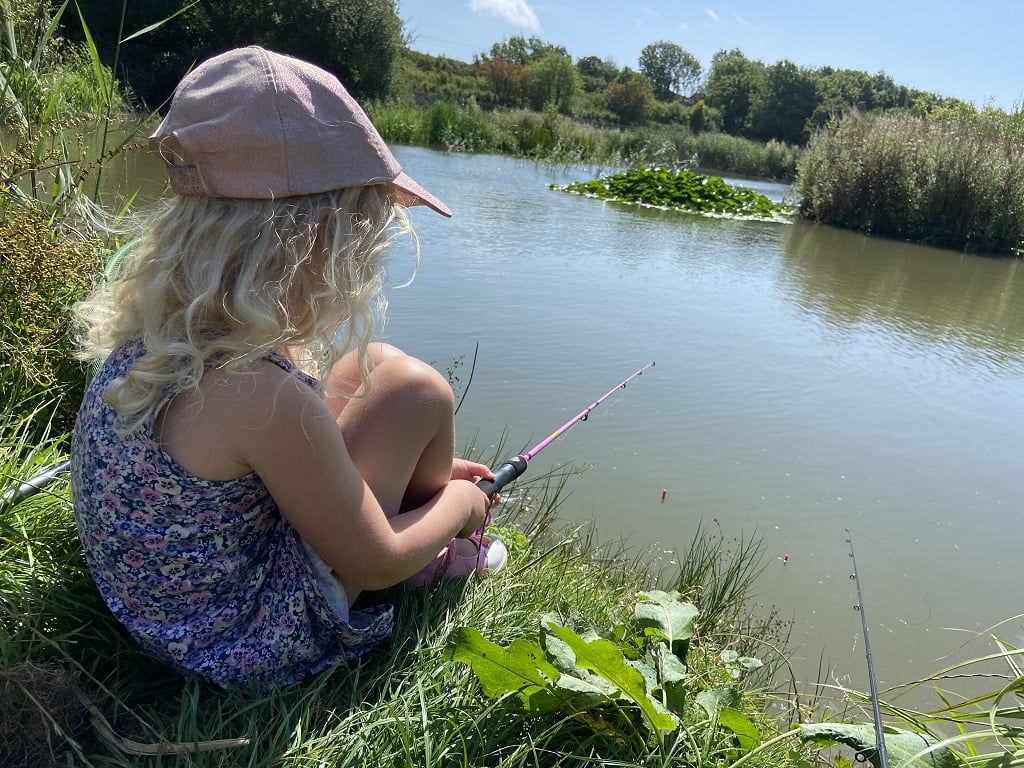
Keep sessions short: Anticipate your time fishing is only likely to be an hour, two max, with anything over that a bonus. Little challenges such as who can catch the most in twenty minutes, or, if two kids are fishing together, who can catch first, are good ways to sustain interest. Obviously, that means you are going to want to choose venues where there are likely to be lots of bites from small fish. I’d highly recommend you go to places where you can get down to the fishing quickly too, without having to walk with heavy bags and run the risk of tiring out the kids before you’ve even started.
Get the kids to do it for themselves: Getting the child to set up their gear, pick out their bait, put it on the hook, and use the disgorger, allows them to get a much bigger sense of achievement and reward from their day – they’ll feel like they did it, so it really is their fish. If you can also get them doing little jobs too, like throwing out a pinch of loose feed every few minutes, you’re far more likely to hold their attention for longer.
Listen to the child: That sounds really blindingly obvious, but you’d be surprised how much more you can get out of the day by taking a real interest in what they have to say about fish and fishing. Why are some fish slimier than others? Why are roach’s eyes so red? Who would win in a race between a maggot or a worm? I’ve learnt loads from fishing with kids, and focusing right in on the smallest of details might just make you a better angler too!
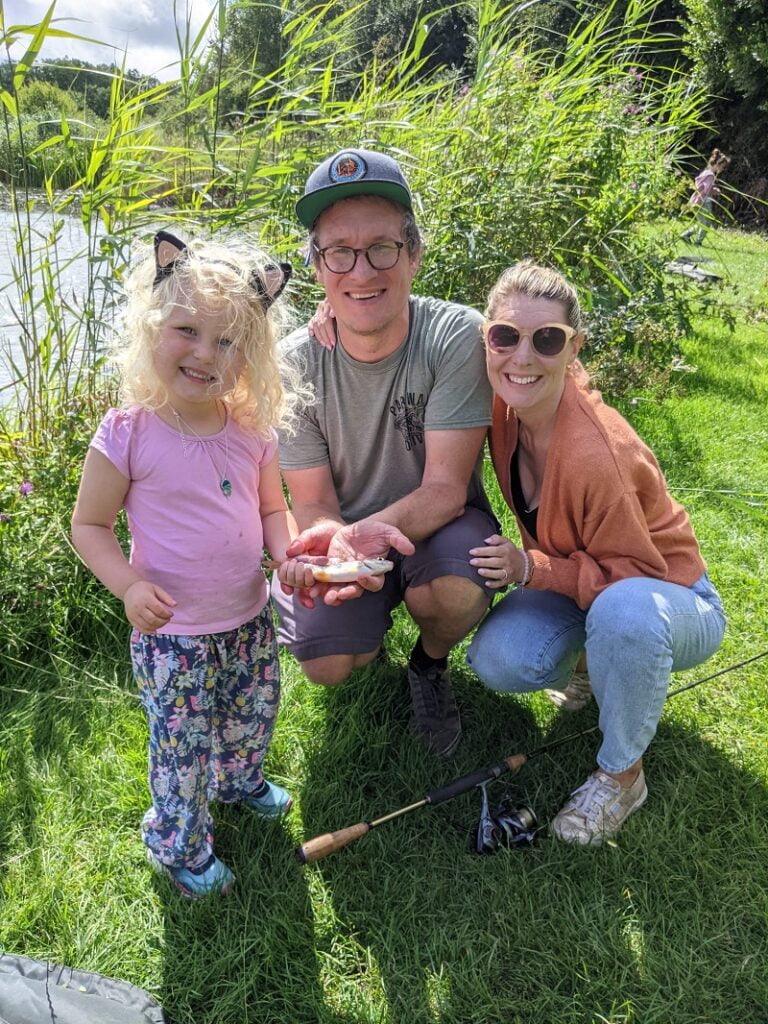
Pick a venue where there are other things to do: Don’t get frustrated or down if they don’t immediately take to fishing in exactly the same fanatical way as you. All children are different and it is much more likely to come if you don’t put any pressure on the day out. Consider venues where you can do more than just fish: perhaps a spot you could do some pond dipping, wildlife watching, or take a leg stretching walk – cafes, toilets, and playparks, are all useful too. Anything that won’t annoy other anglers, but will provide a bit of distraction if you sense they are getting a bit bored. Failing that, I can highly recommend taking some paper and colouring pencils so the kids can draw what they catch – anything that can just add something a bit extra to the time on the bank.
Are you a good teacher? If you are a beginner angler too, give this earlier blog of mine a read and think about learning together. There are some brilliant family friendly clubs out there and many offer junior days and teaching days too. Use the ‘Fishing in Wales’ website resource for details of clubs, venues, and guides – and use your local tackle shop too – a good tackle shop is a goldmine of information for getting kids into fishing, and they’ll know exactly the sort of tackle and bait you’ll need too.
The boring but important bit – the rod license to fish in Welsh freshwater and basic safety. If the child in your care is under 13 you do not need one, but, if they are aged between 13 and 16, you will receive one for free on application. For anyone over 16, there is a charge to pay – head to the official NRW website for all the details. Really think about safety on the banks too. Take a basic First Aid Kit with plasters and antiseptic and don’t go to places which are too steep, slippery, or have very deep, or very fast running, water close in. It just isn’t worth the risk, or the worry.
Finally: Leave them wanting more. It is far better to go home with your child high on a buzz from the fishing, than to fish to the point where they have clearly had enough. Leave them wanting more, and you’ll not only be well on your way to setting that young person on a pathway to a lifetime of enjoyment in angling, but you’ll have done something really important for securing the future of our sport too.
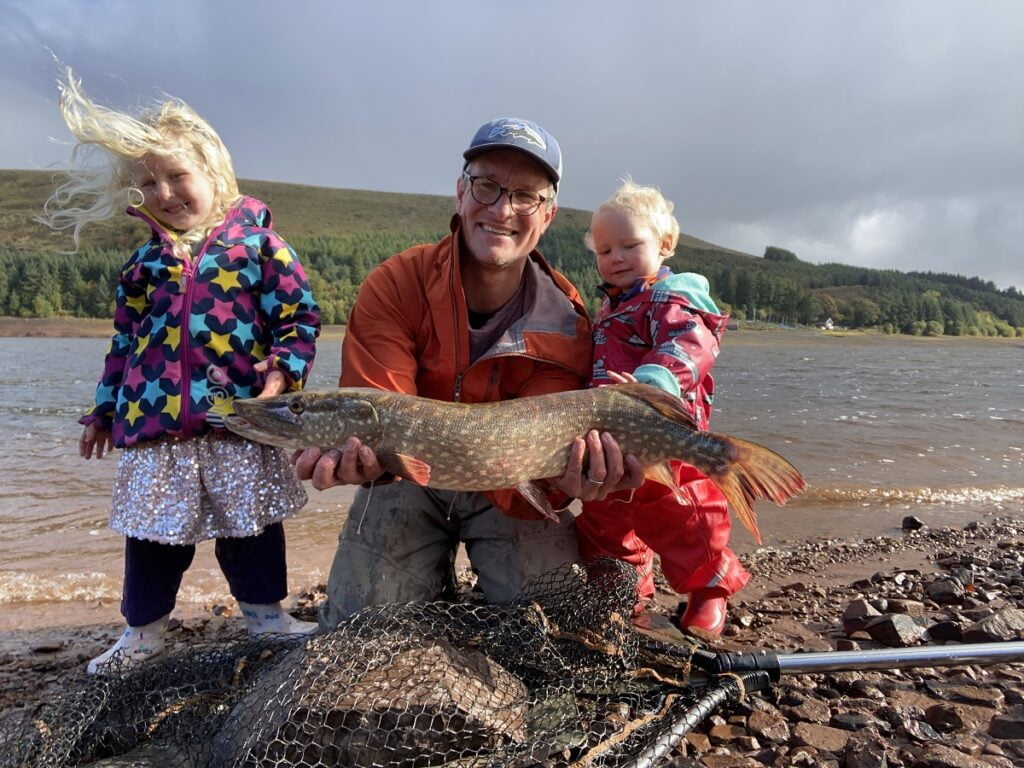
Words & Images: Will Millard
Why should I buy a rod licence?
If you have ever wondered what freshwater rod licence money is spent on, and why you need to buy one, then check out our in-depth article that looks at the benefits of buying a rod licence. Read the article here.
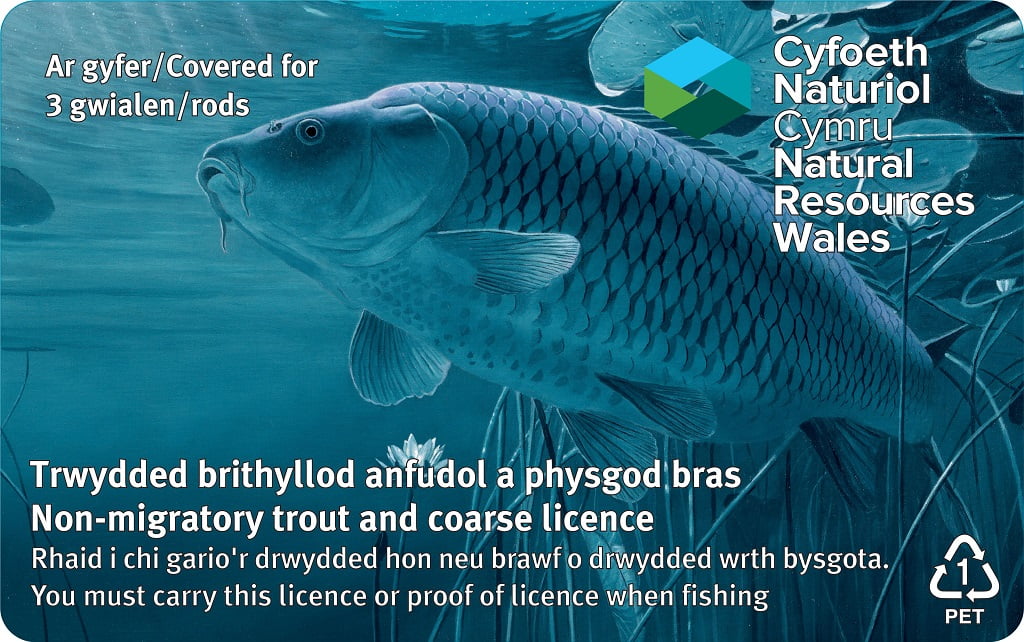
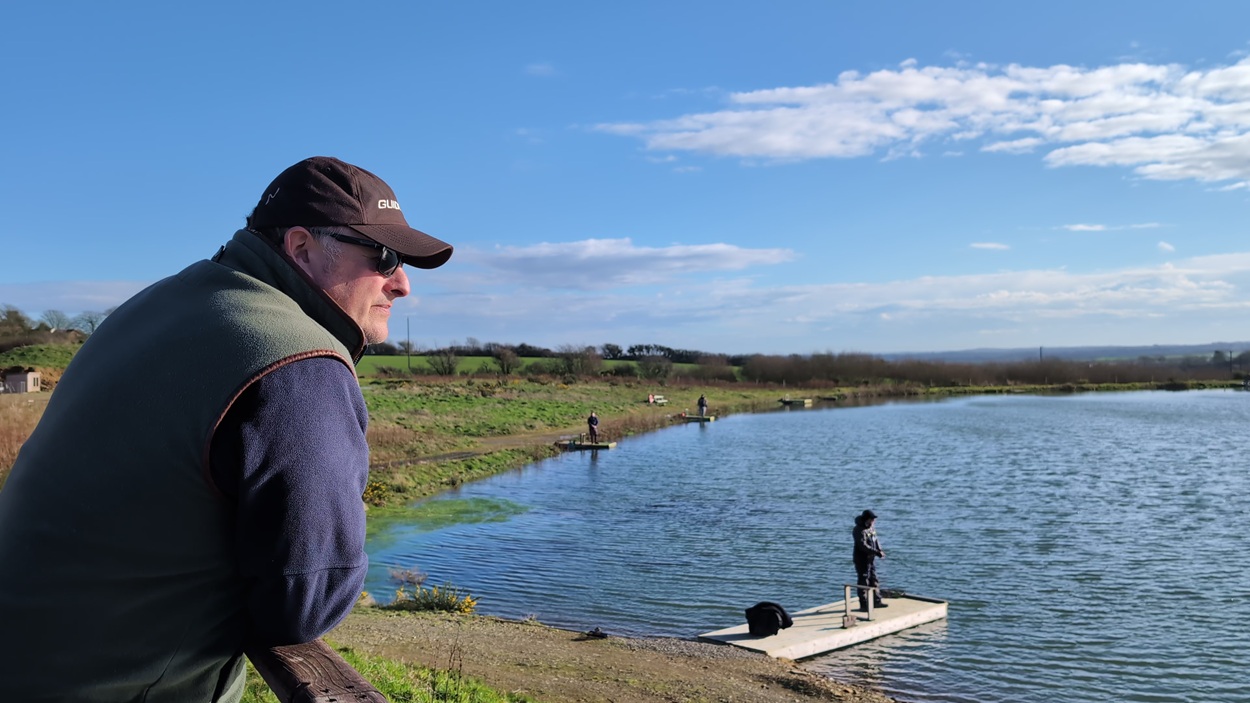
Fishery Profile VIDEO: Foxhill Trout Fishery West Wales
We visit Foxhill Fishery, a trout fly fishing venue near the village of Camrose, just outside Haverfordwest in Pemrokeshire.
Read More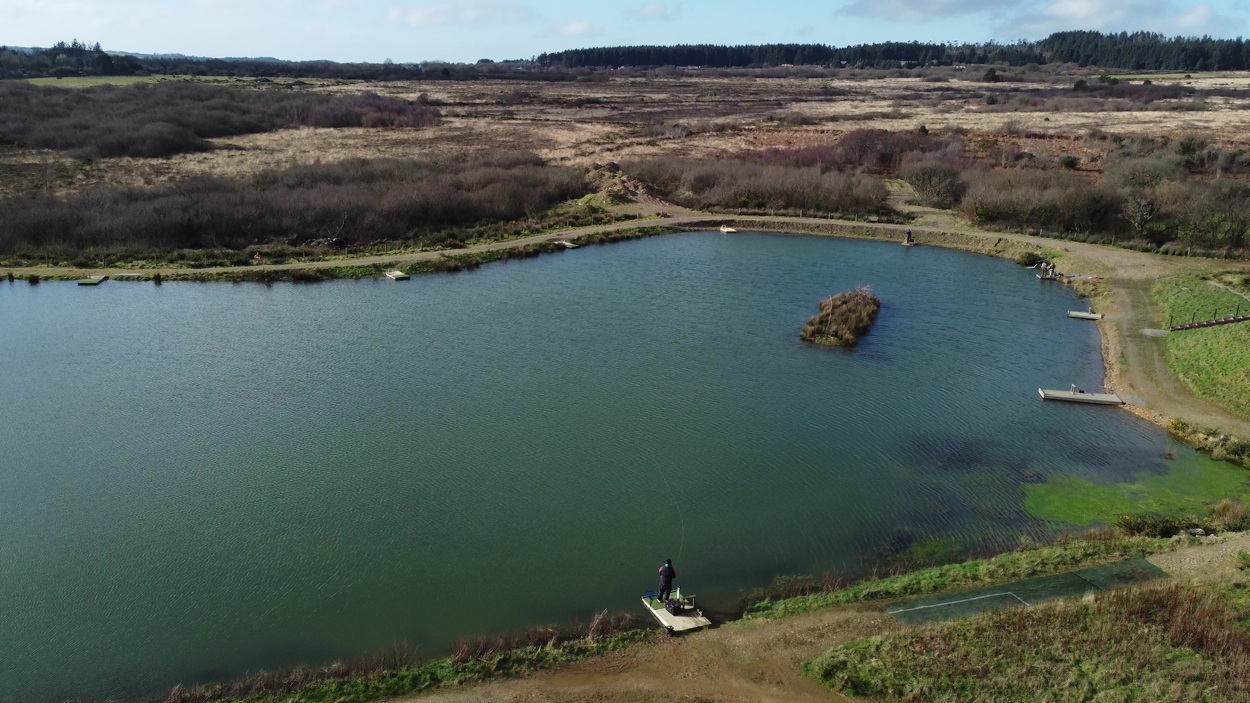
The 4 +1 Fly Fishing CHALLENGE - Foxhill Trout Fishery Wales
We join Hywel Morgan at Foxhill Fishery in Pembrokeshire, West Wales, where he attempts to catch trout on 4 differing…
Read More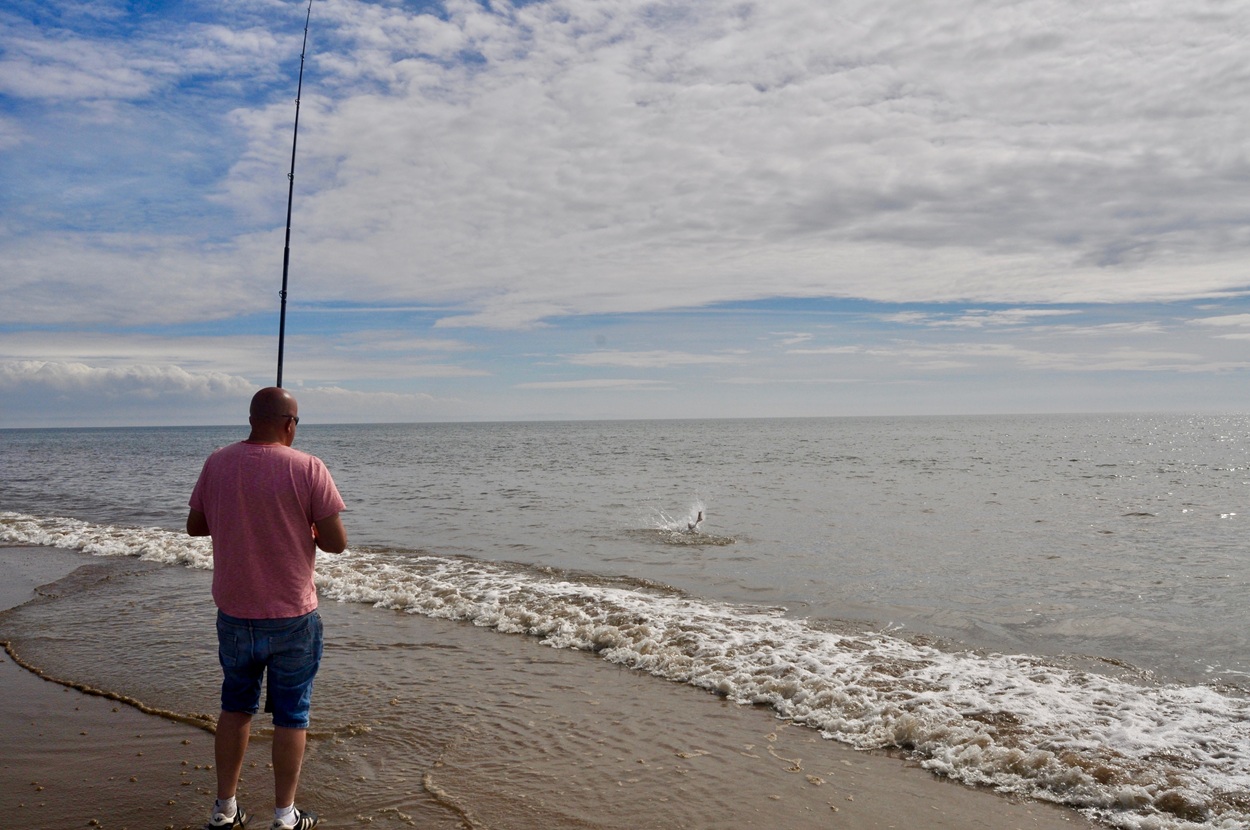
Join the Sea Angling Diary in 2026!
The Sea Angling Diary Project is a citizen science project where sea anglers in England and Wales log their…
Read More
